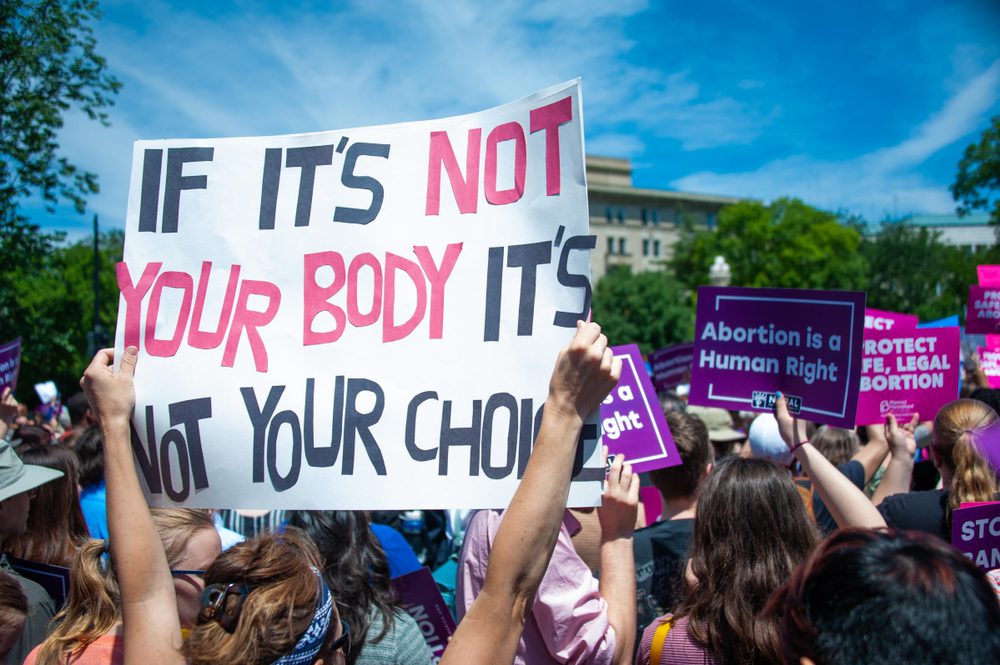As the 2024 U.S. presidential election nears abortion rights have emerged as a pivotal issue especially among women voters. Polls show reproductive rights at the forefront of many voters’ minds making it a significant topic for both major party candidates: Vice President Kamala Harris and former President Donald Trump.
Harris a vocal advocate for abortion rights has called for Congress to enact a federal law safeguarding these rights. This stance follows the Supreme Court’s 2022 decision overturning Roe v. Wade which had previously recognized a constitutional right to abortion.
Harris’s commitment to reproductive rights is evident in her past actions. As California’s attorney general she co-sponsored the Reproductive FACT Act requiring crisis pregnancy centers to inform patients about abortion services availability. Although struck down by the Supreme Court it showcased Harris’s dedication to reproductive health care access.
As a U.S. senator Harris opposed anti-abortion bills seeking to grant personhood rights to fetuses. She championed the Women’s Health Protection Act aimed at establishing a federal statutory right to abortion though it didn’t pass. As vice president Harris has continued advocating for reproductive freedoms leading initiatives like the “Fight for Reproductive Freedoms” tour.
In contrast Trump has supported policies restricting abortion access. During his presidency Trump appointed three Supreme Court justices crucial in the Dobbs v. Jackson Women’s Health Organization case reversing Roe v. Wade. His administration prioritized defunding Planned Parenthood and implementing policies challenging abortion service access.
Trump signed legislation allowing states to deny funding to organizations like Planned Parenthood which provides various reproductive health services including abortion. He attempted to undermine the Affordable Care Act’s provisions related to contraceptive coverage and abortion services.
Trump also reinstated and expanded the Mexico City Policy restricting U.S. funding for foreign organizations providing or referring for abortion services. This policy impacts global reproductive health affecting millions of women worldwide.
Voters are urged to consider candidates’ past actions on abortion. Harris’s record shows consistent commitment to protecting reproductive rights while Trump’s reflects efforts to restrict abortion access.
With abortion rights critical for many voters particularly women the election may hinge on how each candidate articulates their stance. Voters must weigh implications of each candidate’s policies on reproductive health and rights.
The 2024 presidential election presents a clear choice regarding abortion rights. Harris stands as a defender of reproductive freedoms while Trump represents movement toward restricting access. Understanding candidates’ records on this issue will be crucial for voters shaping America’s reproductive rights future.
Beyond the candidates’ positions the election outcome could significantly impact federal abortion policy. A Harris victory might lead to efforts to codify abortion rights into federal law while a Trump win could result in further restrictions.
The election’s impact extends to judicial appointments potentially shaping abortion rights for generations. The next president may have opportunities to nominate Supreme Court justices or federal judges influencing reproductive rights jurisprudence.
State-level abortion policies also hang in the balance. The president’s influence on federal funding and regulations can affect states’ ability to restrict or protect abortion access.
Voter turnout particularly among women and young adults could be heavily influenced by this issue. Both campaigns are likely to focus on mobilizing supporters based on their abortion stance.
The global implications of U.S. abortion policy are significant. The Mexico City Policy’s fate and U.S. funding for international reproductive health programs depend on the election outcome.
As the campaign progresses expect intense debates on the constitutional interpretation of abortion rights the role of federal versus state governance in reproductive health and the broader implications for women’s health care and autonomy.
Ultimately the 2024 presidential election may be a defining moment for abortion rights in America with far-reaching consequences for reproductive health care access and policy for years to come.




